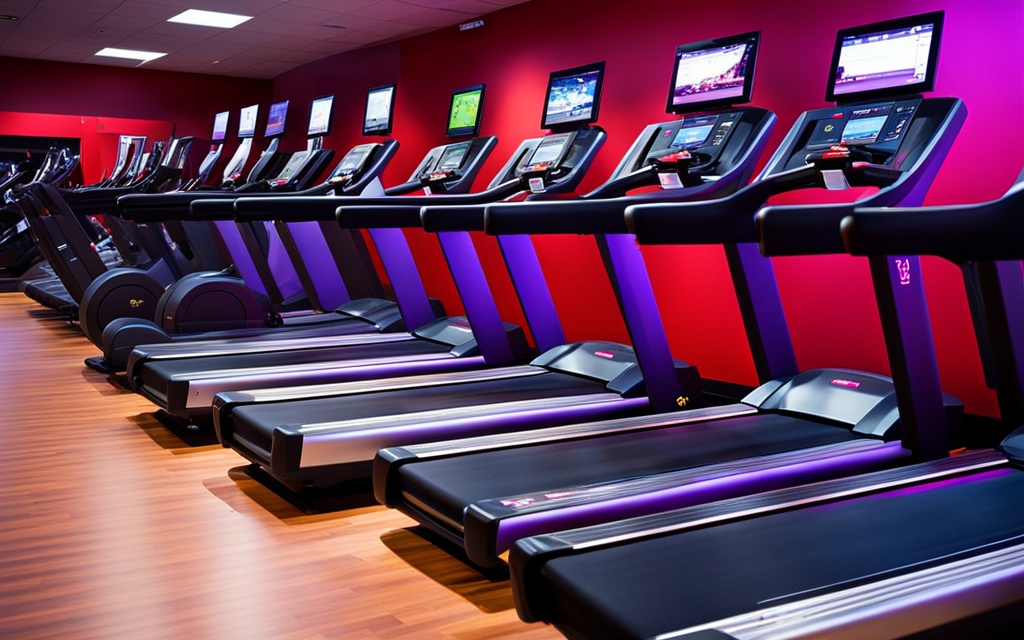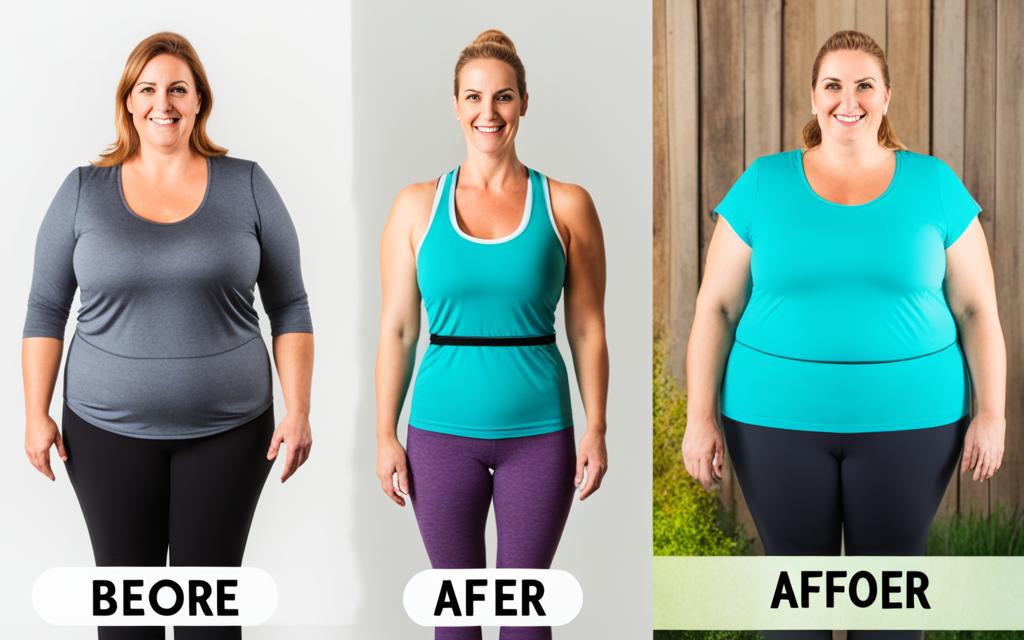Effective Weight Loss Programs for Lasting Results
Starting a weight loss programs can be tough but also very rewarding. To get lasting results, it’s key to find weight loss programs that fit your life and needs. This article will help you with strategies for a lasting calorie deficit, picking the right diet, adding exercise, eating healthily, and boosting your metabolism. If you want to lose a few pounds or more, this guide will give you the knowledge and tools to do well.
Key Takeaways
- Discover effective weight loss programs that can help you achieve lasting results.
- Learn how to create a sustainable calorie deficit for fat burning.
- Explore various diet plans and their impact on weight management.
- Understand the importance of exercise routines for fat burning and muscle building.
- Develop healthy eating habits, including portion control and mindful eating.
- Boost your metabolism with natural strategies, such as proper hydration and sufficient sleep.
- Track your progress and stay motivated throughout your weight loss journey.
Understanding Calorie Deficit for Weight Loss
For sustainable weight loss, focus on creating a calorie deficit. This means eating fewer calories than your body burns. This way, your body uses fat for energy, helping you lose weight in a healthy way.
Calculating Your Daily Calorie Needs
To figure out your calorie deficit, first find out how many calories you need daily. This depends on your age, gender, how active you are, and your metabolism. Use online tools or talk to a health expert to get a precise number.
| Activity Level | Calorie Needs (Women) | Calorie Needs (Men) |
|---|---|---|
| Sedentary | 1,600 – 2,000 calories | 2,000 – 2,400 calories |
| Moderately Active | 1,800 – 2,200 calories | 2,200 – 2,800 calories |
| Active | 2,000 – 2,400 calories | 2,400 – 3,000 calories |
Creating a Sustainable Calorie Deficit
After figuring out your calorie needs, cut your intake by 500-1,000 calories a day. This will help you lose 1-2 pounds a week, which is a healthy pace. Avoid cutting calories too much, as it’s hard to keep up and might slow down your metabolism.
A calorie deficit is key for sustainable by weight loss programs. By knowing your daily calorie needs and making a moderate deficit, you can reach your weight loss goals in a healthy way.
Choosing the Right Diet Plan
There are many diet plans out there, making it hard to pick the right one for losing weight. But, by looking at the good and bad of popular diets, you can choose one that fits your life, tastes, and goals.
The low-carb diet is very popular. It cuts down on carbs to make your body use fat for energy. This diet can help you lose weight and might have other health benefits. But, it can be hard to stick with for a long time and isn’t right for everyone.
Intermittent fasting is another choice. It means eating in cycles, fasting and then eating. This can help you eat fewer calories and is good for your metabolic health. But, it takes a lot of discipline and isn’t good for people with certain health issues or eating disorders.
For those who like eating more plants, a vegetarian or vegan diet is great. These diets focus on whole, unprocessed plant foods. They are full of fiber, vitamins, and minerals. A well-planned plant-based diet can help you lose weight and stay healthy, but you need to make sure you get all the nutrients you need.
| Diet Plan | Pros | Cons |
|---|---|---|
| Low-Carb |
|
|
| Intermittent Fasting |
|
|
| Plant-Based |
|
|
When picking a diet plan, think about what you need, like you like, and your lifestyle. Looking at the good and bad of different diets helps you make a choice that will help you succeed in losing weight for the long term.
The Importance of Exercise Routines
Adding a good exercise routine is key for losing weight and staying healthy. Mixing cardio and strength training helps you get the best results and change your body shape.
Cardio for Fat Burning
Cardio exercises like walking fast, jogging, biking, or swimming are vital for burning fat. They make your heart work harder, using fat for energy. Try to do at least 150 minutes of moderate cardio each week, or 75 minutes of hard cardio, to burn more fat.
Strength Training for Muscle Building
Adding strength training to your cardio routine is important for building muscle. Using weights, your own body, or resistance bands helps grow muscles and speeds up your metabolism. This makes you burn more calories, even when you’re not moving. Do strength training two to three times a week for the best effects.
| Exercise Routine | Benefits |
|---|---|
| Cardio | Improved cardiovascular health, increased calorie burn, enhanced fat loss |
| Strength Training | Increased muscle mass, boosted metabolism, enhanced body composition |
Finding an exercise routine you like and can stick with is key to losing weight. By combining cardio and strength training, you’ll get the most out of your workouts and feel better on your journey to health and fitness.
Healthy Eating Habits for Weight Management
Keeping a healthy weight isn’t just about counting calories or cutting out your favorite foods. It’s about building eating habits that feed your body and boost your health. By focusing on portion control and mindful eating, you can meet your weight goals and enjoy a balanced diet.
Portion Control: The Key to Balanced Intake
Weight Loss Programs relies heavily on portion control. Be aware of how much you eat, even with healthy foods. Use visual aids like your hand or a small plate to help with portion sizes. Eat slowly, enjoy each bite, and pay attention to when you’re hungry or full.
Mindful Eating for a Positive Relationship with Food
Mindful eating means eating with full attention and awareness. Don’t snack or eat quickly. Instead, enjoy the taste, feel, and smell of your healthy eating habits. This can make you have a better relationship with food, helping with weight management and overall health.
- Avoid distractions during meals, such as TV, computer, or phone
- Savor each bite, focusing on the sensations and flavors
- Stop eating when you feel satisfied, not uncomfortably full
- Incorporate a variety of nutrient-dense foods into your diet
By using portion control and mindful eating, you can make a lasting change in your weight management approach. It’s not about quick fixes. It’s about making lifestyle changes that help you make better food choices and have a positive view of eating.
Finding the Right Weight Loss Program
Choosing the right weight loss program can feel overwhelming with so many options. But, by thinking about what you need and like, you can pick one that fits your goals and helps you succeed.
When looking at weight loss programs, aim for ones that focus on lasting health. Stay away from quick fixes or fad diets. These often lead to unhealthy cycles of weight gain and loss.
Go for diet plans that support eating well, regular exercise, and making lasting changes. These are more likely to help you reach your healthy lifestyle goals and keep your progress.
Think about these points when picking a weight loss programs:
- Personalization: Choose a program that considers your unique needs, likes, and health history. Don’t settle for a one-size-fits-all approach.
- Support systems: Check the level of help, coaching, and community support the program offers. This can greatly affect your success.
- Sustainability: Make sure the program suggests realistic and doable changes, not extreme or hard-to-maintain ones.
- Holistic approach: A program that covers nutrition, exercise, stress management, and overall well-being is more likely to bring lasting results.
By carefully choosing the right weight loss programs for you, you’ll boost your chances of reaching your goals and keeping a healthy lifestyle.
Boosting Metabolism with Natural Strategies
For lasting weight loss, it’s not just about cutting calories. Your metabolism is key to how well your body burns fat. By using natural ways to boost your metabolism, you can help your weight loss efforts and improve your health.
The Role of Hydration and Sleep
Hydration and sleep are big factors in your metabolism. Drinking lots of water helps your metabolism and supports your body. Try to drink at least 8 glasses of water a day, especially if you’re active or it’s hot where you live.
Good sleep is also vital for a healthy metabolism. Not sleeping well can mess with your hormones, making you hungrier and more likely to gain weight. Aim for 7-9 hours of sleep each night to help your metabolism and support weight loss.
| Hydration Recommendations | Sleep Recommendations |
|---|---|
|
|
By focusing on hydration and sleep, you can help your body’s metabolism and make weight loss easier and more lasting.
Tracking Your Progress and Staying Motivated
Long-term weight loss progress needs regular checking of your work and a strong will to stay motivated. Setting realistic goals and celebrating small wins helps you stay focused. This way, you can beat any hurdles that come your way.
Setting Realistic Goals
For goal setting, being specific, measurable, and realistic is key. First, look at your current weight and health. Then, set goals you can reach. Break your big weight loss programs into smaller steps to keep you going.
- Set a weekly or monthly weight loss goal that’s healthy and doable (like 1-2 lbs a week)
- Have non-scale goals, like better fitness, more energy, or fitting into smaller clothes
- Check and change your goals as needed to keep moving forward
Celebrating Small Wins
Don’t forget to celebrate your small wins along the way. This could be reaching a weight milestone, following your exercise plan, or choosing healthier food. These small wins are key to staying motivated and focused on your main goal.
| Small Win | Celebration Idea |
|---|---|
| Losing 5 lbs | Treat yourself to a new pair of workout clothes |
| Completing a challenging workout | Enjoy a relaxing spa day |
| Eating a balanced, nutrient-rich meal | Plan a fun activity with friends or family |
Your weight loss programs is a long one. By setting achievable goals and celebrating your wins, big or small, you’re on your way to reaching your goals and staying motivated for the long haul.
Conclusion
Looking for lasting weight loss and a healthier life means tackling both the physical and emotional sides. Understanding how to create a calorie deficit, picking the right diet, and adding effective exercises are key. These steps help you start a journey to reach your weight loss goals.
Boosting your metabolism naturally helps too. Drinking enough water and getting enough sleep are great ways to do this. Tracking your progress, setting achievable goals, and celebrating your successes keeps you motivated. This way, you can reach your goals and keep a happy, confident life.
The path to a healthier you is about the journey, not just the end goal. Take it one step at a time, be patient, and look forward to the changes you’ll see. Embrace a balanced weight loss, and healthy lifestyle for lasting results.
FAQ
What is the key to achieving effective and lasting weight loss?
To lose weight effectively and keep it off, focus on a balanced diet, regular exercise, and changing your lifestyle. This mix helps you shed pounds slowly and boosts your health and body shape.
How do I calculate my daily calorie needs for weight loss?
Use a formula that considers your age, gender, activity level, and other factors to figure out your daily calorie needs. This will show how many calories you need to keep your current weight. Then, eat fewer calories to start losing weight.
What are the benefits of incorporating both cardio and strength training into my exercise routine?
Adding cardio and strength training to your workouts has many benefits for losing weight. Cardio exercises like running or cycling burn calories and improve your heart health. Strength training builds muscle, which can increase your metabolism and help you burn calories even when resting.
How important is portion control and mindful eating for weight management?
Controlling your food portions and eating mindfully is key to managing your weight. Being aware of how much you eat and making smart food choices helps you eat less and stay on track for weight loss.
What are some natural strategies to boost my metabolism for weight loss?
To boost your metabolism naturally, drink plenty of water, get enough sleep, and try high-intensity interval training (HIIT). These habits can increase your metabolic rate and help with weight loss.
How can I stay motivated and track my progress during my weight loss journey?
To stay motivated and track your progress, set achievable goals and celebrate your successes. Use fitness trackers or apps to keep an eye on your progress. Surround yourself with people who support you and focus on the positive changes you see in your life.



